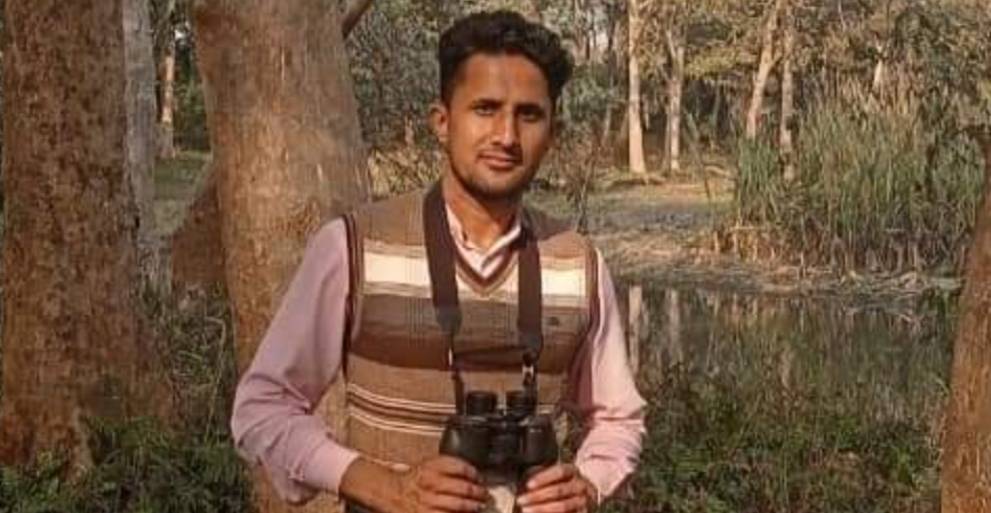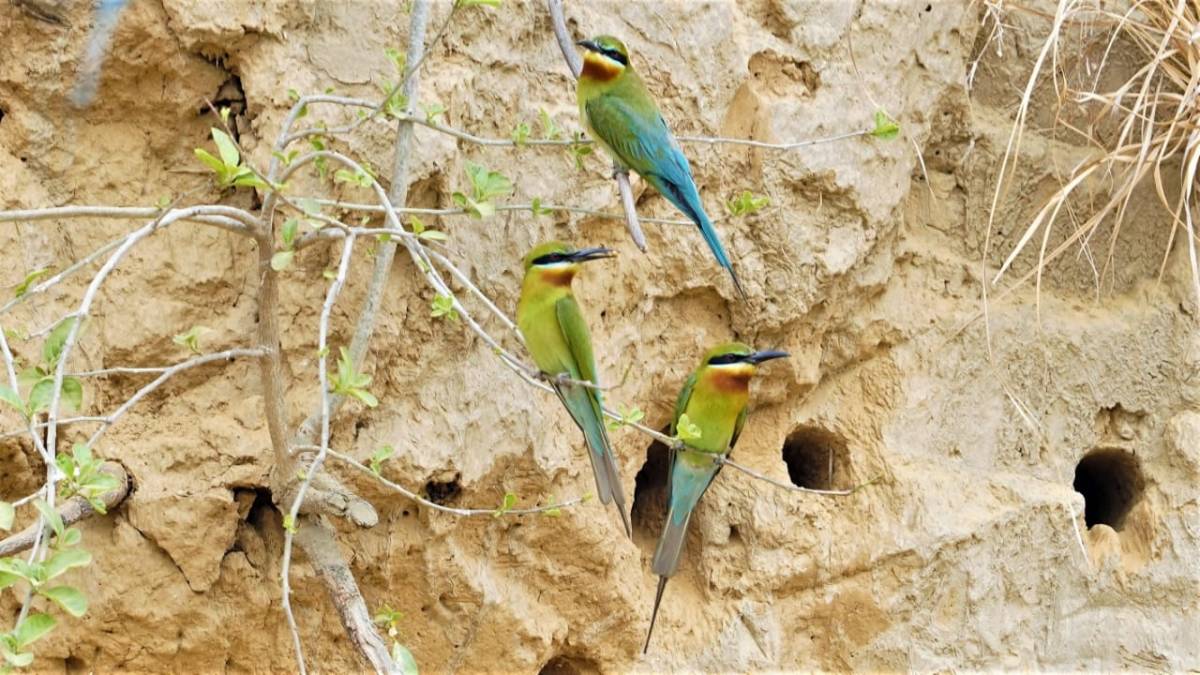Gujjar’s first serious outing to the wetland was when he started practicing for his entrance exam for the Indian Army in 2020, soon after there was a complete lockdown due to the pandemic…reports Nivedita Khandekar
Till a little more than a year ago, Ashish Gujjar was just another youth among the many unemployed from a ‘kasba’ Kasampur Khola near the Haiderpur Wetland, 10 kilometres from Bijnor. Now the flocks of migratory birds at the wetland that were once part of his growing years, helps him earn a decent livelihood.
Ashih Gujjar’s village is just five kilometres from the wetland and hence he has been a regular at the Bijnor barrage area since his childhood. He frequented the marsh with friends or family, sometimes taking his cows out grazing, sometimes to till some part of land for temporary farming but never really looked seriously at the hundreds of thousands of winged friends perched around him.
Now, as a bird and nature guide, he guides the bird watchers visiting the wetland. The Haiderpur wetland is home to more than 240 bird species, over 90 of these being migratory birds that visit in winters. The wetland is also a stopover site for migratory birds on the Central Asian Flyway.
It is fed by the Ganga river and a smaller stream Saloni (it originates near Shukrataal, about 23 km to the north-northeast of the barrage) and is part of the Hastinapur Wildlife Sanctuary. It stretches across 3,000 acres — with a core area of 1,200 acres — in both Muzaffarnagar and Bijnor districts.
There are 10 villages surrounding the wetland, Kasampur Khola is one of them.
“I always loved coming to the wetland as a child. We ate ber (wild berries), we played with friends. This is such a serene place, we always enjoyed coming here,” the 23-year-old nature guide said.
Gujjar’s first serious outing to the wetland was when he started practicing for his entrance exam for the Indian Army in 2020, soon after there was a complete lockdown due to the pandemic. He is trained in ITI and has been assisting his family in farming. It was during the lockdown that he met his namesake at the wetland which gave his life a new direction.
Ashish Loya, an Art of Living volunteer from Bijnor is a keen birder. Since 2013, Loya has coordinated with the Forest Department and local administration and got many improvements done at the wetland, such as putting up watch towers, establishing a forest check post and making an entry gate charging fees to the visitors.
Apart from the courses that he was conducting in Bijnor, he conducted an ‘Art of Living’ course in September 2020 for the youth around the wetland. Before and after his sessions, Loya told the attending youth, including Gujjar, about the various birds, importance of the wetland and in general how this can be helpful to them in earning a livelihood if the wetland was well taken care of.
“It was then that I came to know about the importance of these birds. I expressed willingness to learn and Ashish bhaiyya started training me in birding,” Gujjar narrated his journey.
Although he knew the local names of the birds, some of them, his knowledge was limited. The training helped him and others in identifying more birds and detect individual bird calls, among many other aspects. Gujjar can now identify over 200 birds and was acknowledged for his learning and contribution in creating a checklist of birds at Haiderpur by the Forest Department.
“He is seriously into bird watching now. He discovered a nesting site of Blue-tailed bee-eaters, after which the forest department secured it,” Loya said as he was all praise for his first trainee.
It was an exciting day sometime in mid-July when Gujjar worked as a nature guide for the first time for two seasoned birders from Delhi. Together they made a new addition to the wetland checklist, ‘Oriental Prantincole’.
A week after that, Gujjar was with another group of birders from Delhi, and the word of mouth publicity brought Rajiv Ramaswamy, a senior birder from Gurugram, to the wetland with his birder friends.
“The friend who had been there earlier told us on our group that they spotted a rare bird — the Indian Grass Bird — at the wetland. I was keen on it, so planned a trip. And we managed to see two of them, the Indian Grass Bird,” Rajiv Ramaswamy said on phone.

Rajiv Ramaswamy and his group had given a preference list of birds to Gujjar, accordingly he took them around to relevant parts of the wetland. “Ashish Gujjar knows the place really well. He took us to the exact spot. And not just the Indian Grass Bird, we also managed to see the Bristled Grass Bird,” he said.
A researcher with a digital heath company, Rajiv Ramaswamy said Gujjar has learnt a lot in such a short span of time. He, not only could name a whole lot of birds, but could also identify many of them them with naked eye just by the look of their plume. He even identified some bird calls.
Rajiv Ramaswamy found Gujjar humble and willing to learn as the senior birder taught him to identify some more bird calls. The group also liked his demeanour that showed “he is committed and has a thirst for knowledge”.
Loya is happy with the turn of events. “I am sure, if he does well as a guide and earns a good living, it will encourage many more youth from the area.”
ALSO READ-Migratory birds arrive to enliven Kashmir Valley in winter
READ MORE-Vaduvoor: A tiny village luring and feeding global birds

Leave a Reply